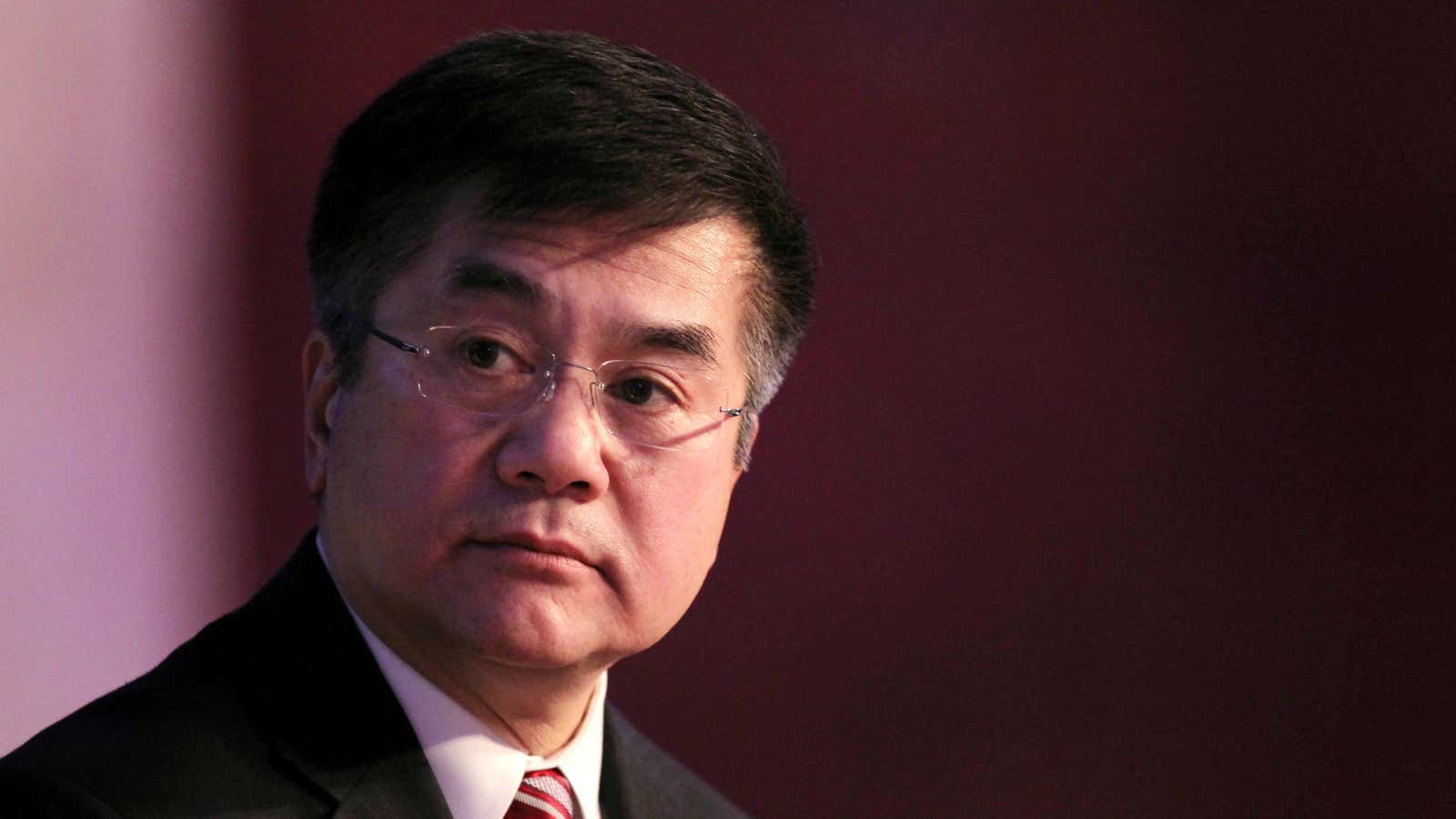The US Ambassador to China, Gary Locke, is in Tibet this week—the first visit by an American ambassador to the restive region since 2010. A spokesman said that Locke is on a three-day trip with members of his family and several embassy staff to meet with residents and government officials and raise concerns about the “deteriorating human rights situation,” specifically the self-immolations by Tibetans in protest against Chinese rule.
At least 120 people, some under the age of 18, have committed suicide by immolation since 2009. Most recently, a 31-year-old Tibetan nun in China’s southwestern Sichuan province set herself on fire on June 11 and died in the hospital a few days later. The Dalai Lama, who is often blamed by Beijing for masterminding the immolations, said after the incident that he doubts their effectiveness.
China suggested for the first time this month that it may be shifting its stance toward the Dalai Lama, who has been living in exile since 1959. According to the Tibetan language website Khabda.org, on June 14 Chinese government officials told some monks they are now free to worship the Dalai Lama as a religious leader, in what was described as a policy “experiment.” They also asked monks to refrain from criticizing the Dalai Lama, and stop using such terms such as “a wolf in a monk’s robe” to describe him.
“As a religious person, from now on you should respect and follow His Holiness the 14th Dalai Lama,” the document said, according to a translation by the Irrawaddy, “but in terms of politics you are not allowed to do so. Politics and religion should go separate ways.”
Last year Ambassador Locke visited Sichuan, which borders the Tibetan Autonomous Region and has been the site of more than two-thirds of Tibetan self-immolations. A month later at an online town hall meeting he told US citizens: “We have very serious concerns about the violence, [and] the self-immolations that have occurred over the last several years. Very deplorable. Nobody wants that type of action, or people having to resort to that type of action. Too many deaths. Too many deaths.”
His statements drew a harsh response from Chinese foreign ministry officials, who said that they “oppose any country or person interfering in China’s internal affairs in any form.”
